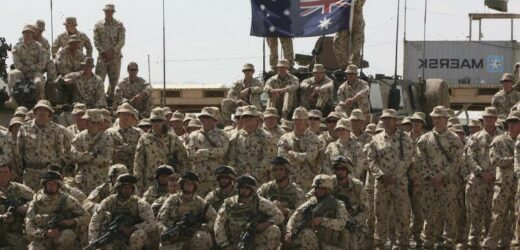The great Australian promise to the people of Afghanistan was to bring peace, security and even prosperity by clearing the country of the Taliban.
Now all it offers is the rescue of 3000 refugees from a regime that beheads those who once worked for its enemies.
Scott Morrison hints that number will be only the first intake in a bigger Australian response to the fall of Kabul. A longer and bigger program will be needed. After two decades of war, Australia cannot run from its obligation to those left behind.
The showpiece for the Australian promise, many years ago, was a training centre in the Australian military base in Tarin Kowt, in Oruzgan province, where soldiers tried to encourage local men to learn trade skills.
The idea was to offer a path out of war. More carpenters, fewer insurgents. Some Afghans signed up in the belief the Australians would stay.
“We have made a difference,” one soldier told this reporter in Tarin Kowt in 2007. “You can tell from the locals their appreciation of Australian forces.”
Australian soldiers at `Kamp Holland` Military base in Tarin Kowt, Afghanistan in 2007.Credit:Andrew Taylor
But it was optimistic then and seems delusional now. The Australians left in 2014 and the Taliban overran the province. The Taliban victory in Kabul was sudden and shocking this week, but it was also years in the making.
Australia and its allies now scramble to respond to events they did not foresee. The United States followed its military defeat with an intelligence failure.
Morrison closed the Australian embassy in Kabul in May and the government got 438 Afghans out of the country over several months, but this was not enough. The government estimates there are about 200 Australian citizens, permanent residents and families left behind, as well as 300 to 400 Afghans with a connection to Australia.
The military operation to evacuate these people from Kabul may not succeed. Morrison is making no assumptions about whether the Taliban will continue to allow people to flee.
In fact, Morrison is worried, like French President Emmanuel Macron, about a wave of asylum seekers from a horrifying takeover of Afghanistan. So Morrison revived his rhetoric about stopping boats and turning back asylum seekers. It is a warning sign for an ugly debate ahead of the election.
This means the Prime Minister’s pledge to take 3000 refugees has to be treated with caution. It is not clear whether it is even possible to airlift that many in the weeks or months ahead. The notion of an orderly queue is always a fantasy.
The pledge looks small next to other countries but not when the details are compared. The United Kingdom promises to take 20,000 but will do so over five years, with 5000 this year. Canada says it will take 20,000 but does not say how long this will take.
Morrison could add to the intake after this financial year. But this is a hint from the government, not a commitment.
Where Morrison’s pledge looks puny is in a comparison with the past. Bob Hawke opened the country to 42,000 people who could not return to China after Tiananmen Square. Malcolm Fraser allowed 50,000 from Vietnam. Tony Abbott took in 12,000 from Syria.
Morrison will not make the same big call. Taking the lead means taking a risk. Cautious as always, he emphasises the dangers in the intake. “We need to be very clear who’s getting on our planes,” he said on Wednesday.
In other words, he does not want to import terrorists in disguise. This is the difference with Hawke and Fraser. The government believes the threat of terrorism requires tighter vetting than in the past. It also believes it has voters on its side with a hard-hearted approach.
In the end, however, the government will have to relent on the claim that those who arrive by boat can never settle in Australia. Many Afghans in this country came by boat. Would Morrison send them back to the Taliban? Of course not. This reality wrecks that rhetoric.
The other rhetoric, from leaders of both major parties over 20 years of war, was that Australia would stand by Afghans in the long term. This week’s pledge to take refugees is only a small start in years of effort to meet that obligation.
Most Viewed in Politics
From our partners
Source: Read Full Article



